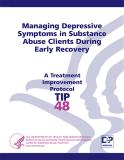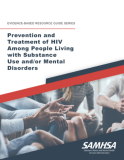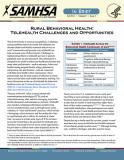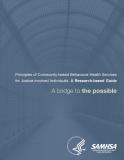
The report highlights the need for HIV treatment providers to address behavioral health concerns with HIV. The report urges providers to start with screening for mental health and substance use disorders, and offers strategies for providers to implement screening practices.
Units per Product
Download
The Case for Behavioral Health Screening in HIV Care Settings
File Type: PDF
File Size: 1.6 MB







